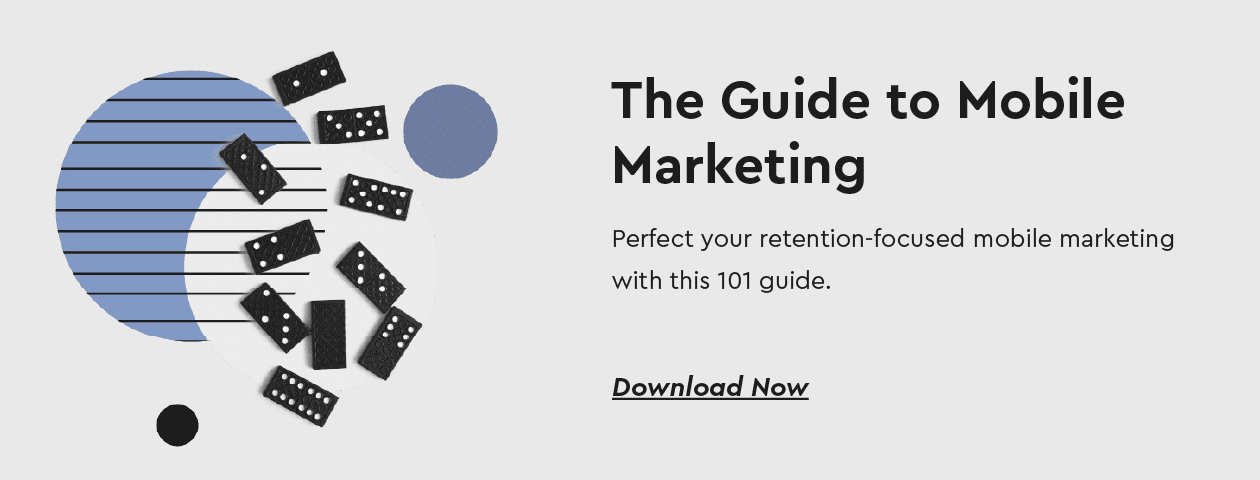What is Mobile App Analytics?
Mobile app analytics captures data from mobile apps to determine app visitors, record behavior, and describe app performance. Understanding how your app is performing is crucial so you can improve conversions and your app’s overall success. Mobile app analytics help you answer various questions about your app’s users, including:
- What do users engage with inside your app?
- What type of users download and use your app?
- Why do customers stop using your app?
Download Now: All you need to know about mobile marketing
Mobile app analytics also give brands an advantage over competitors by offering important insights that help build a mobile experience that is personalized and unique. Using app analytics, you can report user demographics and behaviors to target people like existing users. App analytics give brands information they can use to improve their app, the user experience, and marketing strategies.


What are the main Mobile App Analytics Metrics?
There are several metrics you can use to track mobile app analytics. It is important to choose the best metrics based on the goals you want to achieve. Examples of mobile app analytics metrics include:
- Number of Downloads – how many people download your app indicates your app’s popularity and success.
- Number of Users – not everyone who downloads an app uses the app regularly, so the number of users indicates the retention rate and if users are satisfied with the app.
- Number of Active Users – active users regularly go on your app and are less likely to stop using the app. Understanding who active users are and how they use the app can help you better target other users.
- Retention Rate – because retention is more complicated than acquiring new users, a high retention rate is a good signal that users enjoy your app.
- Session Length – how long a user spends in an app demonstrates how the app performs and if the content engages customers.
- Lifetime Value – lifetime value is how much an individual customer is worth over their lifetime, predicting future revenue generation and if your app is making or losing money.
- User Satisfaction – satisfied users are more likely to continue using the app, and brands can capture more value from satisfied users. Ask users to survey and rate your app to indicate their satisfaction level and if there is anything you can improve.
The Guide to Mobile Marketing
Perfect your retention-focused mobile marketing with this 101 guide.
App Analytics Best Practices
There are several ways to ensure you get the most from your mobile app analytics. Here are some mobile app analytics best practices:
Define User Journeys
Define the user journey using steps each user should follow from installation to purchase. By defining the steps, you can track where users are in the journey and correlate it with specified actions and behaviors. You can use the steps in the journey to determine where users churn and the areas that need improvement. Also, and probably most importantly, you can trigger actions in real time to encourage someone to complete a journey or goal by sending them real-time personalized messages. Think of unpurchased items in your shopping cart. These messages can be sent through App Messaging (Push Notifications or in app messaging) or through any other channel that you know they are more likely to interact with (email or sms for example).
Use Correct Measurements
Ensure that you are measuring data based on what goals you have set. The events you set within your mobile app should relate to the goals you want to achieve so that the insights you find can help you decide how you can improve. Using measurements that do not help you reach your goals wastes time and money.
Include Onboarding
It is important to track the onboarding flow as a key journey in your app. Users that do not complete onboarding in the app are more likely to churn. By increasing the number of users that fully onboard, you will have more active app users that are less likely to churn. It is necessary to know where users get stuck in the onboarding process to understand how to improve the onboarding experience such that more users complete it. You can use the same analytics to trigger personalized automated messages encouraging users to complete the onboarding journey.
Industry Benchmarks
Looking at industry benchmarks can help you understand how competitors are performing to determine if your app is performing better, on track, or worse than similar apps. It also gives brands insight into customer behaviors and metrics that could make their app more successful.
Segment Users
Look at customer behavior, understand it, and identify your most valuable customers. When you find the type of user most valuable to your app, segment them to understand the actions that increase their engagement and retention. By segmenting your most valuable users, you can use similar actions to acquire new customers with similar demographics or behave similarly to those of valuable users. It is also important to understand their preferences to keep customers as active users.
Use Control Groups
When measuring the impact of changes to your mobile strategy look to use control groups to truly understand the incremental impact of each strategy. By setting up control or holdout groups, you will be able to identify how the changes you are implementing are impacting user behavior by comparing the results of the test group to those of the control group.

Use Optimove to Improve Your Mobile App Analytics
Optimove takes insights from your customer data, allowing you to better understand your customers’ preferences and build a strong relationship with them. The advanced CDP (Customer Data Platform) and on-demand interactive analytics applications that Optimove offers give you a deep understanding of your customer base to increase the success of your mobile app.
Contact us today or request a web demo to learn how you can use mobile app analytics to grow your business.
Get a personalized tour of Optimove
Let us show you how to go from tens to hundreds of segments
